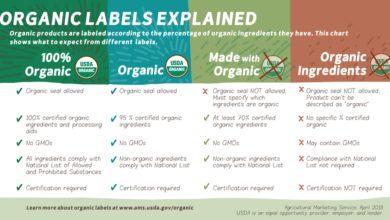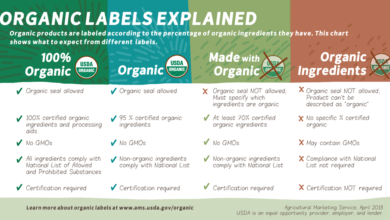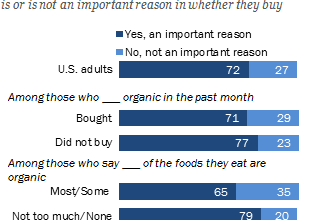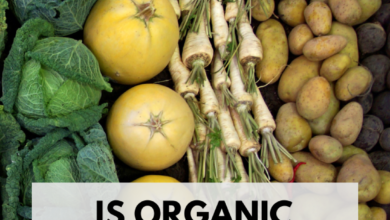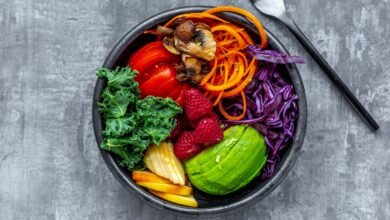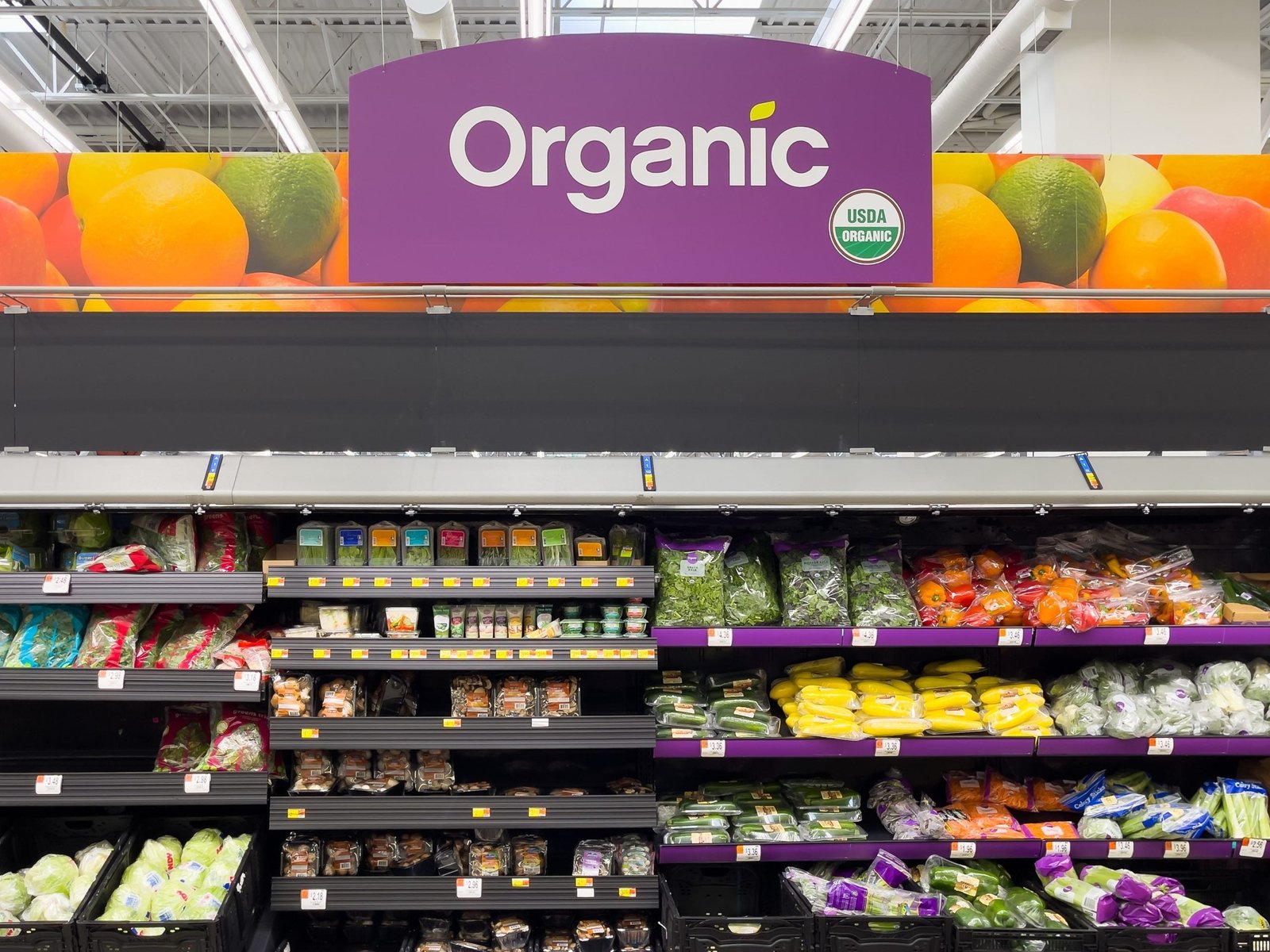
Why is Organic Food Healthy for Us
Organic food benefits our health in several ways. It offers nutrients without harmful chemicals.
But why is it truly better for us? Organic food comes from natural farming methods. Farmers avoid synthetic pesticides and fertilizers. This means fewer chemicals on your plate. Organic produce often contains more antioxidants. These nutrients help protect our cells from damage.
Organic farming also avoids genetically modified organisms (GMOs). This can be important for those concerned about long-term health effects. Additionally, organic meat and dairy come from animals not given antibiotics or hormones. This reduces your exposure to these substances. Eating organic can support a healthier lifestyle. It offers cleaner food choices. Understanding these benefits can help you make informed decisions about what you eat. Enjoying organic food might be a step towards better health.
Nutritional Benefits
Organic food is often celebrated for its nutritional benefits, contributing to better health and overall well-being. Choosing organic means you are opting for food that is grown without synthetic pesticides, fertilizers, or genetically modified organisms. This decision can significantly impact the nutritional value of your meals.
Higher Antioxidant Levels
Organic fruits and vegetables often contain higher levels of antioxidants compared to their conventionally grown counterparts. Antioxidants are crucial as they help neutralize free radicals in your body, reducing the risk of chronic diseases like heart disease and cancer.
Imagine enjoying a fresh organic apple, knowing it’s packed with antioxidants that support your immune system. By opting for organic, you boost your intake of these powerful compounds, enhancing your body’s ability to protect itself. Isn’t that worth considering for your daily diet?
Rich In Vitamins And Minerals
Organic food tends to be richer in essential vitamins and minerals. This means you get more of the good stuff—like Vitamin C, iron, and magnesium—in every bite. These nutrients are vital for maintaining energy levels, strong bones, and a healthy immune system.
Consider how much more satisfying it is to eat a nutrient-rich organic salad that nourishes your body from the inside out. This way, you’re not just eating; you’re fueling your body with what it truly needs. Is your current diet giving you the best of nature’s offerings?
Choosing organic foods can be a simple yet profound change in your lifestyle. As you enjoy the nutritional benefits, you might find yourself feeling more energetic and vibrant. Why not make the shift today and experience the difference for yourself?

Credit: www.pewresearch.org
Chemical-free Production
Organic food offers a healthier choice by avoiding synthetic chemicals. It contains more nutrients and fewer residues. Eating organic supports overall well-being and promotes a cleaner environment.
When you choose organic food, you’re opting for chemical-free production, which is a significant step towards better health. Organic farming prioritizes natural processes and avoids synthetic chemicals. This means that the food you consume is closer to what nature intended, offering you a cleaner, healthier choice. ###No Synthetic Pesticides
Organic farmers use natural methods to protect their crops from pests. They rely on techniques like crop rotation, natural predators, and organic-approved pesticides. This means the produce you eat is free from harmful synthetic pesticides, reducing your exposure to chemicals that can affect your well-being. Think about the last time you picked a fresh tomato from a garden, free from sprays and chemicals. That burst of natural flavor is not just tasty; it’s safer for you and your family. By choosing organic, you support farming practices that care for the earth and your health. ###Avoids Harmful Additives
Organic foods avoid harmful additives like artificial preservatives, colors, and flavors. These additives can sometimes cause health issues or allergic reactions. Instead, organic foods maintain their natural taste and nutrients without needing a long list of unpronounceable ingredients. Consider reading a food label and recognizing every ingredient listed. That clarity is reassuring, isn’t it? Organic foods provide transparency, letting you know exactly what’s in your food. This can lead to peace of mind and a healthier lifestyle. Choosing organic means making a conscious decision about what you put into your body. Have you ever wondered how different your life might be without the hidden chemicals in your diet? Embrace the benefits of organic food and enjoy the purity it brings to your table.Environmental Impact
Organic food promotes health by avoiding harmful chemicals found in conventional farming. Rich in nutrients, it supports overall well-being. Choosing organic reduces exposure to pesticides, benefiting both the body and the environment.
Organic food is not just about what you eat; it’s also about how it’s grown and its impact on our planet. The choices you make in the grocery store can affect the environment in significant ways. Choosing organic means supporting farming practices that are better for the earth. Let’s dive into how organic farming practices impact the environment positively.Reduced Pollution
Organic farming minimizes pollution by avoiding synthetic fertilizers and pesticides. These chemicals often seep into our water systems, causing harm to aquatic life and contaminating drinking water. By choosing organic, you are helping to keep our rivers and lakes cleaner and safer. Walking through a local farmer’s market, I once chatted with a vendor who shared how his organic practices had rejuvenated the nearby creek. This isn’t just a feel-good story; it’s a real benefit you contribute to with every organic purchase.Promotes Biodiversity
Organic farms often grow a variety of crops, which helps maintain healthy ecosystems. Diverse crops attract different types of wildlife, from beneficial insects to birds, creating a balanced environment. Have you ever noticed more butterflies in areas with mixed plants and flowers? That’s biodiversity in action. Organic farming encourages this harmony, making it a haven for many species. Think about your garden or local park. When you plant a variety of species, you create a vibrant, self-sustaining ecosystem. Organic farms do this on a larger scale, and by buying organic, you support this crucial environmental work. So, next time you’re at the store, consider the broader impact of your food choices. How can your shopping habits contribute to a healthier planet?Improved Taste
Organic food often offers a richer, more vibrant taste. This improved flavor comes from natural growing processes. Without chemicals, organic food develops its true essence. Many people notice these deep flavors on their first bite. The taste is both fresh and natural, a treat for the senses.
Natural Flavor
Organic farming nurtures the soil and plants. This care leads to enhanced natural flavors. Chemical fertilizers can mask these true tastes. Organic foods grow in harmony with the earth. This results in produce that bursts with authentic flavor.
Freshness Retained
Organic food is often fresher. It usually travels shorter distances to your table. Less travel means less time in storage. Freshness enhances taste and nutrient levels. You enjoy food that is closer to its natural state.
Support For Local Farmers
Choosing organic food is not just about health benefits; it’s also a powerful way to support local farmers. When you opt for organic produce, you contribute to a vibrant local economy, helping farmers continue their sustainable practices. Imagine walking through a farmers’ market, chatting with growers who can tell you exactly where your food comes from. This connection is not just about buying food; it’s about investing in the community and promoting healthier farming methods.
Encourages Sustainable Practices
Local farmers who grow organic food often use methods that benefit the environment. They avoid harmful chemicals and focus on soil health, which keeps ecosystems thriving. This approach reduces pollution and helps conserve water. Have you ever thought about how your organic apple was grown? It’s likely from a farm that values sustainability, ensuring better health for you and the planet.
Supporting these farmers means encouraging practices that respect nature. You play a role in reducing chemical runoff and preserving biodiversity. Every organic purchase is a vote for farming that prioritizes long-term health over short-term gains.
Strengthens Community Ties
Buying organic from local farmers fosters community connections. You get to know the people who grow your food, strengthening trust and collaboration. These relationships can lead to community events and initiatives that benefit everyone.
Consider joining a local CSA (Community Supported Agriculture) program. You receive fresh produce directly from farmers, while they gain stable income. It’s an opportunity to learn about the seasons, share recipes, and support each other. How does it feel to be part of a community that values health and sustainability?
Supporting local farmers is not just a transaction; it’s a commitment to community well-being. It encourages conversations and connections that go beyond simple purchases. Next time you choose organic, remember the farmers behind your food and the positive impact you’re making.

Credit: universityhealthnews.com
Healthier Soil
Organic food is often celebrated for its health benefits. One key reason is the healthier soil it comes from. The farming practices used in organic agriculture nurture the earth. These practices focus on maintaining the soil’s natural vitality. Healthy soil means healthier plants, which results in more nutritious food. Let’s explore why this matters by delving into nutrient-rich earth and the prevention of soil erosion.
Nutrient-rich Earth
Organic farming relies on compost and natural fertilizers. These materials enrich the soil with essential nutrients. This process boosts the soil’s quality and fertility. Plants absorb these nutrients, making them more nutritious. A nutrient-rich earth leads to healthier crops. This means better food for us.
Plants grown in rich soil have more vitamins and minerals. This enhances their health benefits. The absence of synthetic chemicals also helps. Organic crops are free from harmful residues. This makes them safer for consumption.
Prevention Of Soil Erosion
Organic farming methods protect the soil. Practices like crop rotation and cover cropping prevent erosion. These techniques keep the soil intact and fertile. Maintaining topsoil is crucial for crop growth. It holds the nutrients plants need to thrive.
Preventing soil erosion also benefits the environment. It reduces the loss of valuable nutrients and organic matter. This ensures a sustainable ecosystem. Healthy soil supports diverse plant and animal life. It plays a vital role in maintaining balance in nature.
Animal Welfare
Organic food supports a healthier lifestyle by reducing exposure to harmful chemicals. It contains fewer pesticides and artificial additives. Choosing organic options can lead to better nutrition and improved overall well-being.
Organic food is not just about what ends up on your plate; it’s also about how it gets there. A critical aspect of organic farming is animal welfare, which ensures that animals are treated with respect and care. This focus on animal welfare not only benefits the animals but also enhances the quality of the food we consume. Let’s delve into how ethical treatment and natural living conditions play a significant role in this process.Ethical Treatment
In organic farming, animals are given ethical treatment, which means they are not subjected to unnecessary stress or harm. Unlike conventional farming, where animals might be cramped in small spaces, organic farms prioritize their well-being. They are allowed to express natural behaviors, which leads to healthier and happier animals. Imagine visiting a local farm where chickens roam freely, pecking at the ground and spreading their wings. This setting is far removed from the confined cages often seen in mass production farms. When animals are treated ethically, it reflects in the quality of the food they produce. Have you ever considered the journey of the food you eat? Knowing that the animals were treated well might make your meal more satisfying. Ethical treatment is not just a farming practice; it’s a commitment to kindness and quality.Natural Living Conditions
Natural living conditions are a cornerstone of organic farming. Animals are not only given space but also a natural environment that supports their well-being. This includes access to the outdoors, fresh air, and sunlight, which are essential for their health. Consider a cow grazing in a lush green pasture rather than being confined to a feedlot. The freedom to move and graze naturally reduces stress and promotes better health. These factors contribute to producing higher-quality dairy and meat products. When animals live in conditions that mimic their natural habitats, they require fewer antibiotics and interventions. This means that you consume fewer chemicals and additives in your organic food. Isn’t it reassuring to know that choosing organic supports a more natural and humane way of life? Have you ever wondered about the impact of your food choices on animal welfare? Opting for organic is a step towards supporting ethical and sustainable farming practices. Your choices can make a difference in promoting a more compassionate world for animals.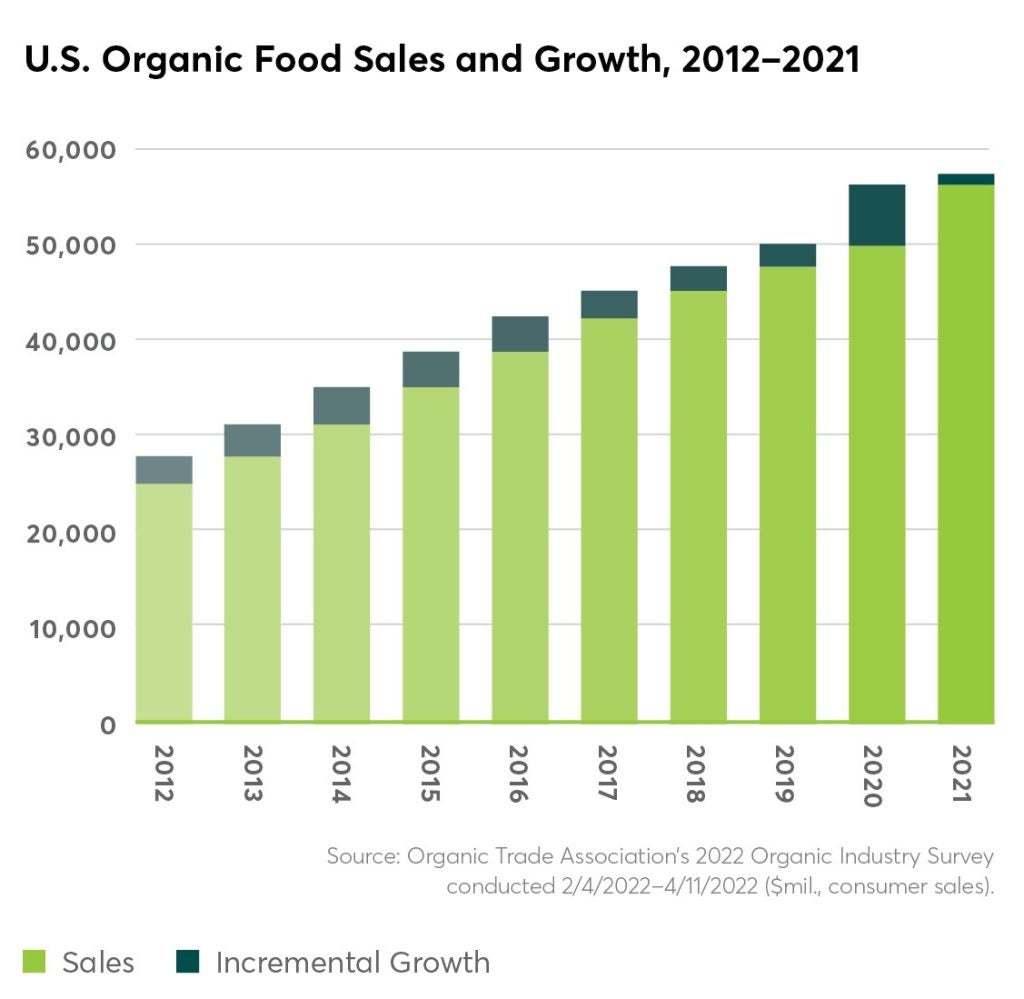
Credit: www.just-food.com
Long-term Health Benefits
Organic food is more than a trend. It’s a lifestyle choice with lasting health benefits. People who choose organic often enjoy better long-term health. This choice impacts more than just physical well-being. It supports mental and emotional health, too. Organic foods are grown without synthetic chemicals. They often contain higher nutrient levels. This leads to a healthier life over time. Let’s explore some long-term benefits of organic food.
Reduced Risk Of Chronic Diseases
Eating organic food can lower the risk of chronic diseases. These include heart disease, diabetes, and cancer. Organic produce tends to have more antioxidants. Antioxidants help protect cells from damage. This reduces the risk of disease. Organic foods also have fewer harmful chemicals. These chemicals can lead to health problems over time. Choosing organic can support a healthier, longer life.
Enhanced Immune System
An organic diet can boost the immune system. Organic foods are rich in vitamins and minerals. They provide essential nutrients to keep the body strong. These nutrients help the immune system fight off infections. Organic foods also contain less pesticide residue. Pesticides can weaken the immune system. By choosing organic, you support your body’s natural defenses.
Frequently Asked Questions
Why Is Organic Food Healthier?
Organic food is healthier because it contains fewer pesticides and chemicals. It often has higher nutrient levels and promotes better environmental practices. Organic farming avoids synthetic fertilizers, enhancing soil health and biodiversity. Choosing organic can lead to cleaner eating and a more sustainable lifestyle.
What Happens To Your Body If You Only Eat Organic Food?
Eating organic food may reduce pesticide exposure and provide higher antioxidant levels. It can support healthier digestion and potentially boost overall health. Organic diets often lead to consuming more fruits and vegetables, which may enhance nutrient intake. The impact varies based on individual health and dietary balance.
What Is The Importance Of Organic?
Organic products reduce exposure to harmful chemicals and promote health. They support biodiversity and sustainable farming. Organic farming practices enhance soil and water quality. Consumers trust organic labels for transparency. Choosing organic helps preserve the environment and supports ethical production.
Organic items often taste better and offer higher nutritional value.
What Are The Benefits Of Eating Natural Foods?
Eating natural foods boosts energy and improves digestion. They enhance immune function and reduce disease risk. Natural foods support healthy weight management and promote better skin health. Enjoying these foods provides essential nutrients and antioxidants for overall wellness.
Conclusion
Choosing organic food benefits health and well-being. It provides essential nutrients. Less exposure to harmful chemicals supports your body’s natural balance. Organic farming methods promote environmental sustainability. Eating organic reduces the risk of health issues. It nurtures a healthier lifestyle overall.
Organic produce often tastes fresher and better. It’s a conscious choice for future generations. Prioritizing organic food can improve your diet. Enjoy the natural goodness and peace of mind. Make healthier choices today for a better tomorrow. Your body will thank you.



